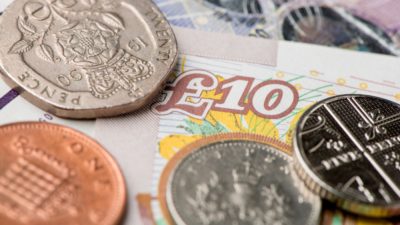In a tale of two currencies, Airtel Africa‘s (LSE:AAF) latest quarterly results have set the market buzzing, painting a picture as complex as the continent it serves. Airtel Africa’s share price has been on a rollercoaster ride, mirroring the company’s struggle against fierce economic challenges while simultaneously showcasing its robust operational muscle. As the price falls after the report, I’m taking a closer look at what’s next for the company.
Currency challenges
In constant currency terms, Airtel Africa’s revenue soared by a jaw-dropping 19%, with Nigeria and East Africa playing the roles of star performers, notching up growth of 33.4% and 22.3%, respectively. It’s a testament to the company’s ability to tap into the region’s insatiable appetite for mobile and financial services. Mobile service revenue surged by 17.4%, while Mobile Money services – the golden goose of African fintech – skyrocketed by 28.4%.
But here’s where the plot thickens. When viewed through the lens of reported currency, the picture transforms dramatically. Revenue took a nosedive, plummeting 16.1%. This Jekyll and Hyde scenario lays bare the brutal impact of currency devaluations, with the Nigerian naira playing the villain in this financial drama.
The company’s EBITDA margins felt the squeeze too, contracting to 45.3% from a previous 49.5%. Blame it on skyrocketing fuel prices and Nigeria’s diminished contribution following its currency’s freefall. Yet in a major display of resilience, constant currency EBITDA still managed to climb by 11.3%.
Net profit, however, took a battering. It plunged by a staggering 120.3% to $31m, ambushed by $80m in exceptional losses from currency fluctuations. The naira’s continued slide left its mark on earnings per share too, which retreated from $0.039 to $0.023.
Reasons for positivity
But it’s not all doom and gloom. The firm is doubling down on its future, ramping up capital expenditure by 4.9% year on year. The company’s maintaining its full-year capex guidance between $725m and $750m – a bold statement of intent in uncertain times.
One major bright light I see in this report is that management has wiped out its HoldCo debt, repaying a whopping $550m bond. Now, 86% of its market debt is in local currency – a savvy move to shield itself from the slings and arrows of outrageous exchange rates.
On the ground, the company’s army of customers continues to swell, growing by 8.6% to a formidable 155.4m. Data usage is exploding, with customer numbers up 13.4% to 64.4m and average usage per customer surging 25.1% to 6.2 GB. Mobile money services are also on a tear, with subscriber growth of 14.9% and transaction value leaping 28.7% in constant currency.
I like what I see
These results presents a fairly mixed bag for investors. Currency difficulties may be severe, but the Airtel Africa share price performance remains fairly solid. Its laser focus on data and mobile money services, coupled with its improving debt profile, positions it as a potential titan in the evolving African telecoms landscape.
In the high-stakes game of African telecommunications, this company is playing for keeps. I’ll be buying more share at the next chance I get.







